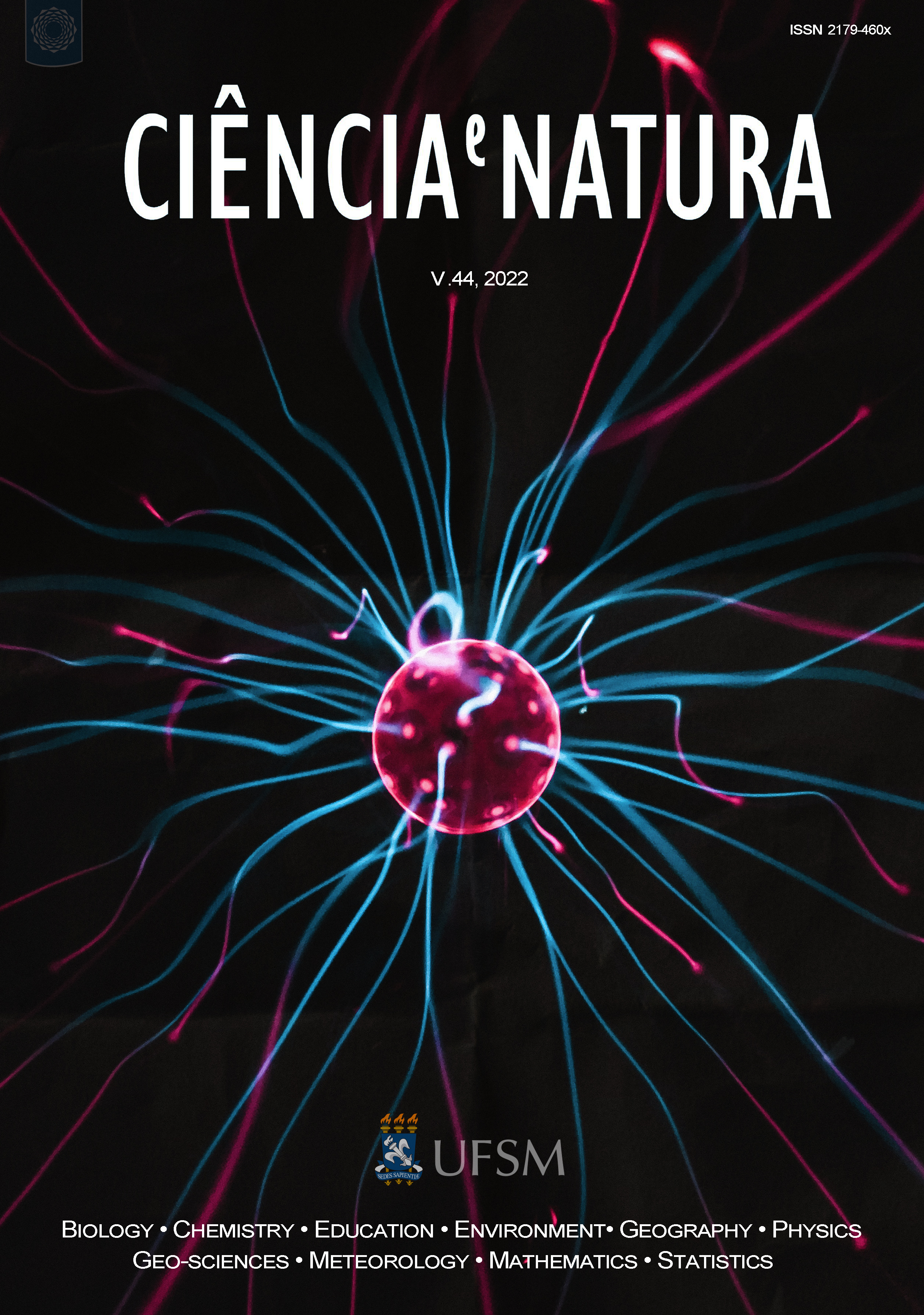Algumas propriedades do conjunto dos Números de Liouville
DOI:
https://doi.org/10.5902/2179460X65058Palavras-chave:
Números de Liouville, Transcendência, Medida de Hausdorff, Medida de irracionalidade, Números irracionaisResumo
O presente trabalho consiste na apresentação dos primórdios da Teoria dos Números Transcendentes. Começaremos com uma pequena introdução a respeito das aproximações racionais e seus teoremas clássicos, como o de Hurwitz-Markov. A seguir, definiremos os números de Liouville e suas propriedades mais intrínsecas, culminando com a prova de sua transcendência. Também falaremos sobre a medida de irracionalidade, uma forma interessante de classificar o grau de irracionalidade de um número real, e, por último (e não menos importante), discutiremos os aspectos mais paradoxais dos números de Liouville como conjunto, que sob a ótica da topologia é o complementar de um conjunto magro, ou seja, é um conjunto "grande". Já sob a ótica da Análise, é um conjunto de medida nula, tanto na medida de Lebesgue quanto na de Hausdorff.
Downloads
Referências
BORWEIN, J. M.; BORWEIN, P. B.; DILCHER, K. Pi, euler numbers, and asymptotic expansions. The American Mathematical Monthly, Taylor & Francis, v. 96, n. 8, p. 681–687, 1989.
CHANDRASEKHARAN, K. Introduction to analytic number theory. 1. ed. New York: Springer Science & Business Media, 2012. v. 148.
GELFOND, A. Transcendental and Algebraic Numbers. New York: Dover Publications, 1960.
HARDY, G.; WRIGHT, E. An Introduction to the Theory of Numbers. 6. ed. New York: Oxford University Press, 2008.
MARQUES, D. Teoria dos Números Transcendentes. 1. ed. Rio de Janeiro: Sociedade Brasileira de Matemática, 2012.
MAYNARD, J. Small gaps between primes. 2019.
OXTOBY, J. C. Measure and category: A survey of the analogies between topological and measure spaces. New York: Springer Science & Business Media, 2013. v. 2.
POLYANSKII, A. A. On simultaneous approximations of ln 3 and π/√3 by rational numbers. Sbornik: Mathematics, IOP Publishing, v. 210, n. 4, p. 589, 2019.
ROTH, K. F. Rational approximations to algebraic numbers. Mathematika, London Mathematical Society, v. 2, n. 1, p. 1–20, 1955.
SONDOW, J. Irrationality measures, irrationality bases, and a theorem of jarnik. arXiv preprint math/0406300, 2004.
ZEILBERGER, D.; ZUDILIN, W. The irrationality measure of π is at most 7.103205334137… Moscow Journal of Combinatorics and Number Theory, Mathematical Sciences Publishers, v. 9, n. 4, p. 407–419, 2020.
ZHANG, Y. Bounded gaps between primes. Annals of Mathematics, v. 179, p. 1121–1174, 2014.
Publicado
Versões
- 2022-07-07 (3)
- 2022-06-15 (2)
- 2022-04-18 (1)
Como Citar
Edição
Seção
Licença
Copyright (c) 2022 Ciência e Natura

Este trabalho está licenciado sob uma licença Creative Commons Attribution-NonCommercial-ShareAlike 4.0 International License.
Para acessar a DECLARAÇÃO DE ORIGINALIDADE E EXCLUSIVIDADE E CESSÃO DE DIREITOS AUTORAIS clique aqui.
Diretrizes Éticas para Publicação de Revistas
A revista Ciência e Natura está empenhada em garantir a ética na publicação e na qualidade dos artigos.
A conformidade com padrões de comportamento ético é, portanto, esperada de todas as partes envolvidas: Autores, Editores e Revisores.
Em particular,
Autores: Os Autores devem apresentar uma discussão objetiva sobre a importância do trabalho de pesquisa, bem como detalhes e referências suficientes para permitir que outros reproduzam as experiências. Declarações fraudulentas ou intencionalmente incorretas constituem comportamento antiético e são inaceitáveis. Artigos de Revisão também devem ser objetivos, abrangentes e relatos precisos do estado da arte. Os Autores devem assegurar que seu trabalho é uma obra totalmente original, e se o trabalho e / ou palavras de outros têm sido utilizadas, isso tem sido devidamente reconhecido. O plágio em todas as suas formas constitui um comportamento publicitário não ético e é inaceitável. Submeter o mesmo manuscrito a mais de um jornal simultaneamente constitui um comportamento publicitário não ético e é inaceitável. Os Autores não devem submeter artigos que descrevam essencialmente a mesma pesquisa a mais de uma revista. O Autor correspondente deve garantir que haja um consenso total de todos os Co-autores na aprovação da versão final do artigo e sua submissão para publicação.
Editores: Os Editores devem avaliar manuscritos exclusivamente com base no seu mérito acadêmico. Um Editor não deve usar informações não publicadas na própria pesquisa do Editor sem o consentimento expresso por escrito do Autor. Os Editores devem tomar medidas de resposta razoável quando tiverem sido apresentadas queixas éticas relativas a um manuscrito submetido ou publicado.
Revisores: Todos os manuscritos recebidos para revisão devem ser tratados como documentos confidenciais. As informações ou ideias privilegiadas obtidas através da análise por pares devem ser mantidas confidenciais e não utilizadas para vantagens pessoais. As revisões devem ser conduzidas objetivamente e as observações devem ser formuladas claramente com argumentos de apoio, de modo que os Autores possam usá-los para melhorar o artigo. Qualquer Revisor selecionado que se sinta desqualificado para rever a pesquisa relatada em um manuscrito ou sabe que sua rápida revisão será impossível deve notificar o Editor e desculpar-se do processo de revisão. Os Revisores não devem considerar manuscritos nos quais tenham conflitos de interesse resultantes de relacionamentos ou conexões competitivas, colaborativas ou outras conexões com qualquer dos autores, empresas ou instituições conectadas aos documentos.






